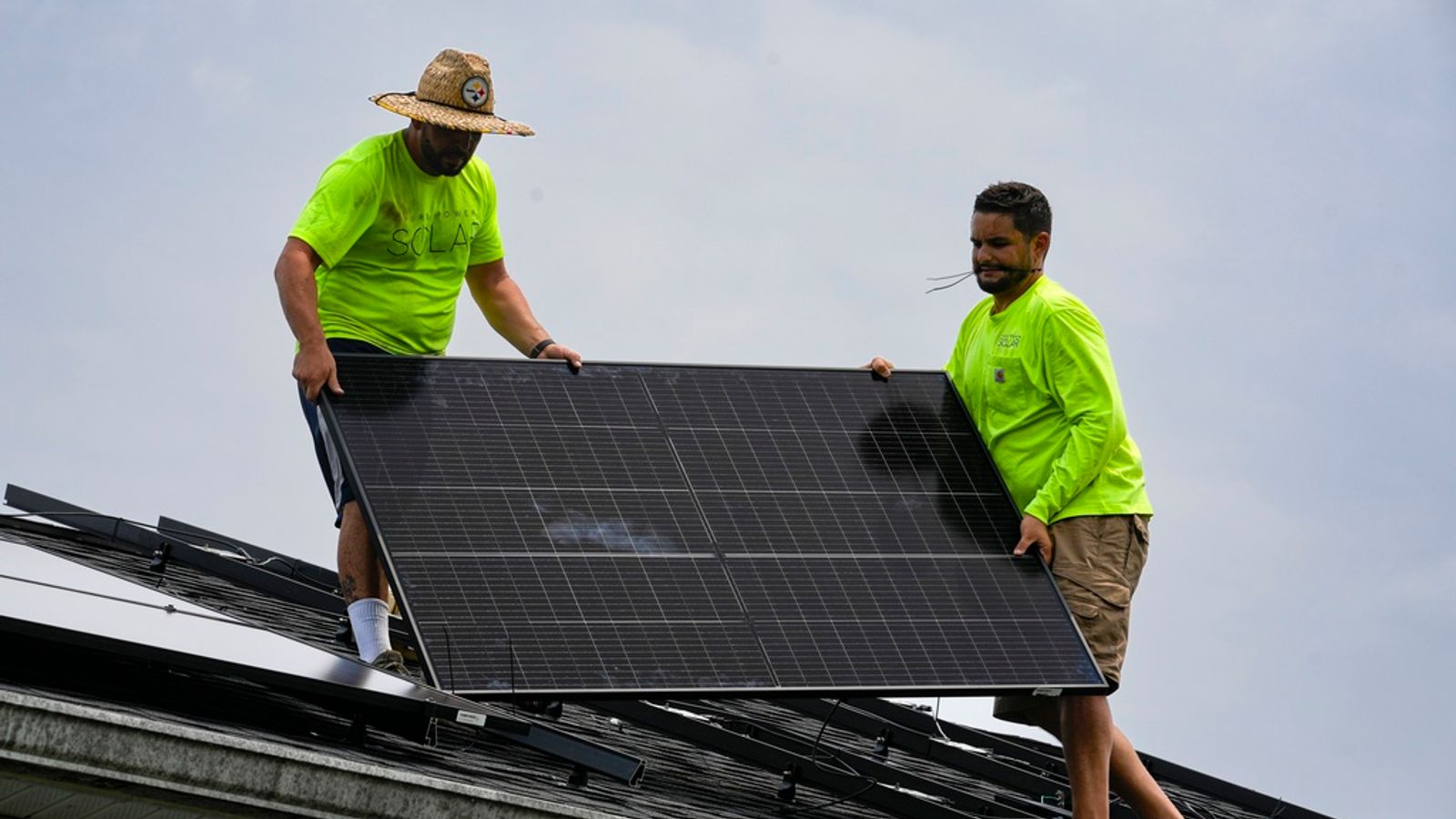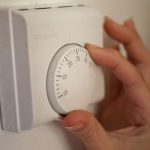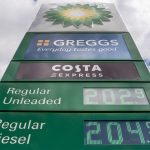The surge in clean energy around the world has raised hopes the world may still reach its climate change target, according to the leading energy agency.
Electric vehicles and solar panels have grown at record rates, in line with the pace needed to reach net zero emissions by 2050, the International Energy Agency (IEA) said.
Net zero means cutting emissions as much as possible and offsetting the rest, and is seen as key to limiting warming to 1.5C above pre-industrial levels – a goal of the Paris Agreement.
But the IEA said the window for reaching that goal is still shrinking overall, with the growth in these clean technologies propping it open.
IEA executive director Fatih Birol said: “Keeping alive the goal of limiting global warming to 1.5C requires the world to come together quickly.
“The good news is we know what we need to do – and how to do it,” and today’s report maps out the path, he said.
But he called on governments to cooperate, which he said was crucial to the world’s success.
Extreme global warming could eventually wipe out humans, first-ever supercomputer climate models warn
Nissan commits to 2030 electric car deadline despite delay to UK petrol-diesel ban
Keep off that grass: Herd of sheep eats 100kg of cannabis in Greece after Storm Daniel floods
“Governments need to separate climate from geopolitics, given the scale of the challenge at hand.”
EVs and solar are set to provide a third of the cuts to greenhouse gases needed between now and 2030, regarded as a crucial time period for putting the world on the right course for meeting the net zero by 2050 target.
The findings came in an update to the IEA’s benchmark 2019 report on how to get to net zero.
The IEA analysts said, however, that bolder action is needed this decade to meet the 1.5C target and fend off worsening climate change impacts like more intense heatwaves and drought.
They said fossil fuel demand must fall by a quarter by 2030.
That will require global renewable power capacity to triple, a doubling of improvements to energy efficiency, and a sharp rise in sales of electric cars and heat pumps.
Read more on Sky News:
Supercomputer climate models warn of apocalyptic future
Mini heatwave to come – with 23C ‘Indian summer’ weather
Please use Chrome browser for a more accessible video player
Last week the Prime Minister Rishi Sunak rowed back on clean power targets, including delaying the end of new petrol and diesel car sales in favour of EVs.
He also pushed back the phase out of gas boilers, which would make way for electric-powered heat pumps.
Watch The Climate Show with Tom Heap on Saturday and Sunday at 3pm and 7.30pm on Sky News, on the Sky News website and app, and on YouTube and Twitter.
The show investigates how global warming is changing our landscape and highlights solutions to the crisis.






















